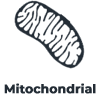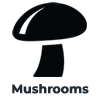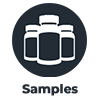What Is Ashwagandha?
More and more people are starting to turn to natural adaptogens for stress support. One of the most popular natural adaptogens is Ashwagandha. Ashwagandha, also known as Indian ginseng and winter cherry, is a staple herb used in Ayurveda, and is the plant that is used to produce Sensoril, Shoden, and KSM-66. The name “Ashwagandha” means “smell of horse” and refers to the herb’s distinct smell and the belief that taking the herb gives you the virility and strength of a horse. On the flipside, the latin name for Ashwagandha, Withania somnifera, means “sleep-inducing”. These two contrasting meanings, strength and virility vs sleep-inducing, is illustrative of the adaptogenic nature of Ashwagandha which can provide both vigor and relaxation!
There are lots of Ashwagandha extracts on the market, but the most popular and effective are Sensoril, Shoden, and KSM-66; all of which are patented, clinically tested Ashwagandha extracts with data to back up their efficacy claims. Let’s take a closer look at these Ashwagandha extracts and determine what works best for you!









